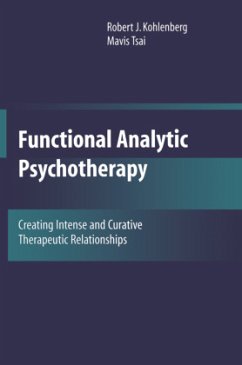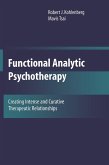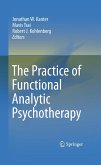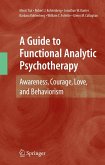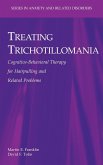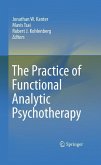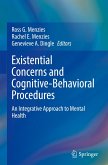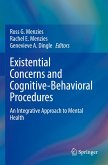As cognitive behavior therapy becomes increasingly integrated, Functional Analytic Psychotherapy (FAP) remains a rich therapeutic method. FAP synthesizes aspects of psychodynamic and object relations therapy with traditional CBT methods, and author/ practitioners Robert Kohlenberg and Mavis Tsai originally created this book to be more than a simple how-to manual. Rather it is a powerful framework for clinicians seeking to rethink their approach to the therapeutic relationship. Now in paperback, this classic work is more relevant than ever.
The book begins with the theory behind the therapy (including its roots in B. F. Skinner's behavior-analytic work in the 1970s), explaining why clients' unique needs may extend beyond well-mapped routes to change. From there, the authors present the clinical principles of FAP and their uses in treating diffuse, resistant problems. Case illustrations model the therapeutic dyad, show FAP techniques in action, and offer crucial caveats.The ground rules: how, and why, FAP works. Recognizing clinically relevant verbal behaviors. The role of the self in personality disorders. New roles for cognitions and beliefs in therapy. Memories and emotions: what they can and can't do to promote change. How FAP fills the niche between psychodynamic and behavioral therapy. Key issues in ethics, research, and supervision.
For the clinical psychologist interested in revitalizing practice, minimizing impasses, and treating clients on a deeper emotional level, Functional Analytic Psychotherapy brings fresh insights to the many worlds within and outside the clinical setting. Graduate students, especially, will find this text a valuable window onto traditional behavioral approaches to therapy.
The book begins with the theory behind the therapy (including its roots in B. F. Skinner's behavior-analytic work in the 1970s), explaining why clients' unique needs may extend beyond well-mapped routes to change. From there, the authors present the clinical principles of FAP and their uses in treating diffuse, resistant problems. Case illustrations model the therapeutic dyad, show FAP techniques in action, and offer crucial caveats.The ground rules: how, and why, FAP works. Recognizing clinically relevant verbal behaviors. The role of the self in personality disorders. New roles for cognitions and beliefs in therapy. Memories and emotions: what they can and can't do to promote change. How FAP fills the niche between psychodynamic and behavioral therapy. Key issues in ethics, research, and supervision.
For the clinical psychologist interested in revitalizing practice, minimizing impasses, and treating clients on a deeper emotional level, Functional Analytic Psychotherapy brings fresh insights to the many worlds within and outside the clinical setting. Graduate students, especially, will find this text a valuable window onto traditional behavioral approaches to therapy.
From the reviews:
"This book describes how radical behaviorism can be used to create therapeutic relationships in order for meaningful change to occur. ... The audience includes therapists 'interested in revitalizing practice, minimizing impasses, and treating clients on a deeper emotional level.' ... graduate students will also find this book valuable. ... is excellent in the way it combines two theories and shows specifically how to apply them in clinical work. ... it is full of valuable information." (Gary B. Kaniuk, Doody's Review Service, September, 2008)
"This book describes how radical behaviorism can be used to create therapeutic relationships in order for meaningful change to occur. ... The audience includes therapists 'interested in revitalizing practice, minimizing impasses, and treating clients on a deeper emotional level.' ... graduate students will also find this book valuable. ... is excellent in the way it combines two theories and shows specifically how to apply them in clinical work. ... it is full of valuable information." (Gary B. Kaniuk, Doody's Review Service, September, 2008)

